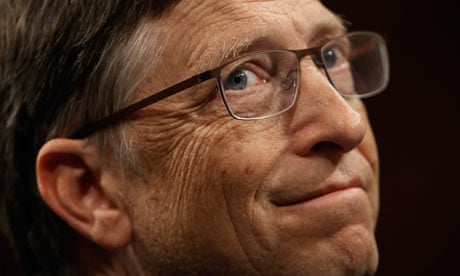It will exasperate Microsoft's PRs that Bill Gates's philanthropic efforts attract far less attention than his comments on, say, China and the internet.
BBC Today's Evan Davis managed to shoehorn in a brief question on Gates's opinions about Chinese censorship, despite what was no doubt a strictly managed interview set up.
Google made a big deal about pulling out of China, finally, in protest at continued censorship and those hacking attempts. But why, asked Davies, would an intelligent man like Gates make the statement that "Chinese efforts to censor the internet have been very limited". Was he just having an off day? Before a PR intervened and cut off the discussion, Gates' reply was:
"The internet is a great source of information and it is good the internet is there in China. It's an incredibly positive thing. Governments have all sorts of things they don't like on the internet - nuclear plans that are not supposed to be published, libel, pornography, copyright infringement, all sorts of things."
"But China's list is a lot longer than that - like people who disagree with them," pointed out Davis, before he was cut off.
Gates is not chief executive of Microsoft anymore, of course, and arguably not under any obligation to comment on industry issues. But he is in a position of power and influence and should be prepared to set an example. Whatever Google's conveniently PR friendly reasons for pulling out of China, it is still right to take a stand against the mass censorship of the internet in China.
Gates's soggy and safe generalisation about the internet as a great source of information is true, yes, but the value and democracy of that information is severely undermined when whole swathes of opinion and perspective are blocked.
Photo by schoschie on Flickr. Some rights reserved
China's domestic internet businesses are very strong, so the departure of Google and the absence of Western media (or the need to route around blocks to access them) is not a major concern for the public. But the underbelly of censorship is far worse, with writers who express opposing views increasingly targeted by the authorities.
Thirty journalists and 76 web dissidents have been jailed in China this year alone, according to Reporters Sans Frontières. "China is the world's biggest prison for journalists, bloggers and cyber-dissidents," says RSF in its annual report on China. "Most of the around one hundred prisoners have been sentenced to long jail sentences for 'subversion' or 'divulging state secrets' and are held in harsh conditions, with journalists often being put to forced labour."
Microsoft's chief executive Steve Ballmer is no better; between them they have a shoddy record. In January Ballmer suggested Google over-reacted by pulling out of China, and likened the complicity in active internet filtering to oil companies importing oil from Saudi Arabia, despite censorship there.
It's a shame Gates missed a golden opportunity.

Comments (…)
Sign in or create your Guardian account to join the discussion